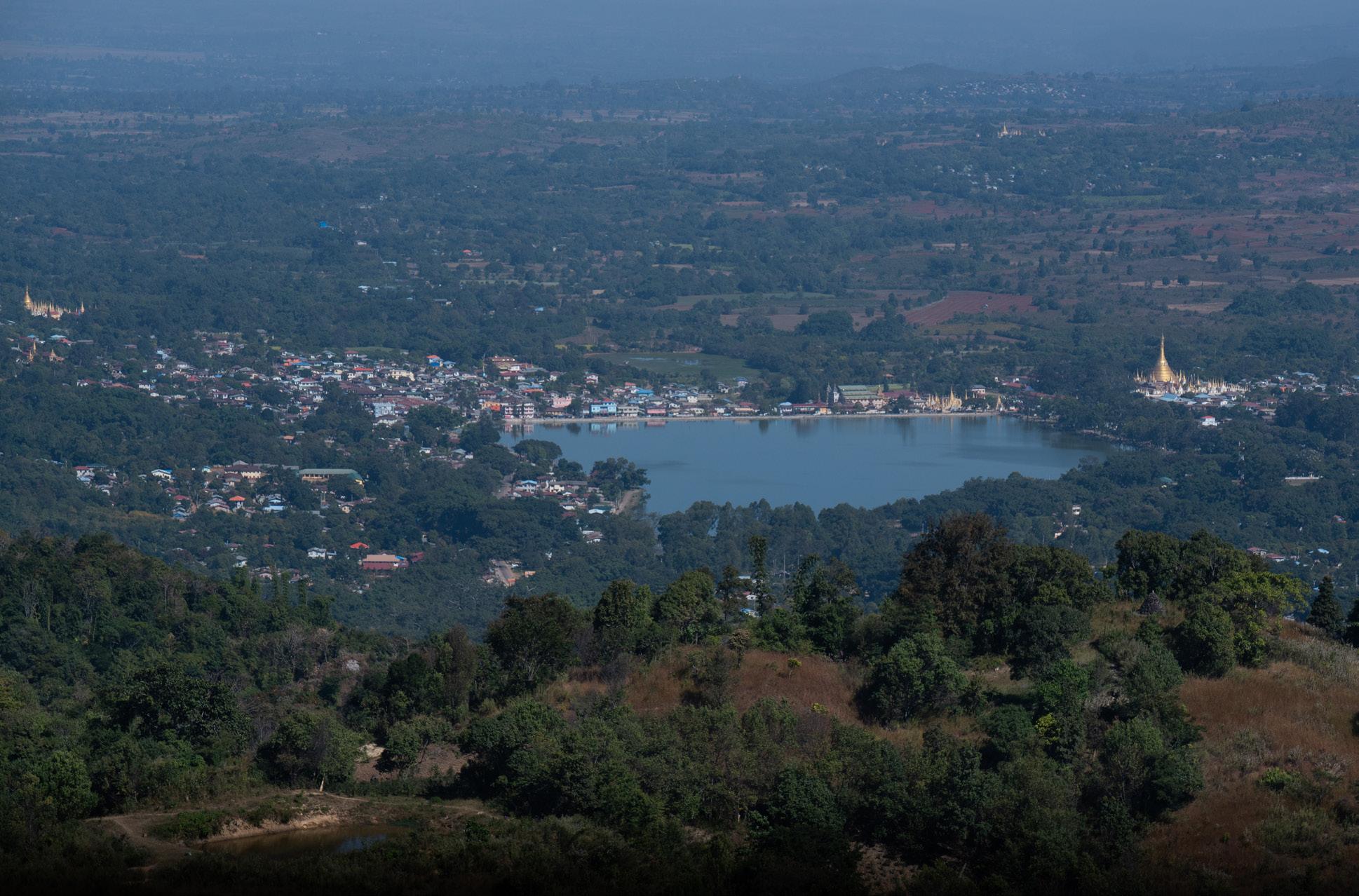
3 minute read
14. Women’s Attitudes affect Education & Participation in Village Affairs

Overlook of City of Pindaya, Pindaya Township, December 2019
Daw Mya Sandar Soe is a volunteer at Shwe Danu in Pindaya. She identified a lack of education as the root cause of women’s lack of participation in village affairs. She noted that the highest level of education that most women in the Danu region complete is grade 5. As a result, they lack confidence, and they are afraid that if they attend meetings they would have to write. They are also afraid to speak and give their opinions about village affairs, and they do not want to be in charge of collecting donations for religious ceremonies. This is because they are ashamed to ask for money and do not want to be responsible for writing records of donations.
Daw Mya Sandar Soe mentioned that over the past five years, some parents have started to focus on their children’s education, and some women have passed the matriculation exam and are encouraged to become schoolteachers or midwives. She stated that some women who did pass matriculation are now working as company staff in Taunggyi, Pindaya, Yangon, and Mandalay. However, most parents want their educated children to become schoolteachers because teachers are well respected in society.
From Daw Mya Sandar Soe’s perspective, women’s attitudes about decision making procedures in the village influence their participation in village affairs. She has noticed that women do not want to be involved in village affairs. “Women just say ‘let men lead’. Women do not complain, or discuss, or give advice. They let men take on leadership roles and do not want to be involved.” As a result, mostly men serve on village committees; if women are committee members they are just accountants.
According to Daw Mya Sandar Soe, women also discourage other women from participating in village affairs. “Women discriminate against other women. Women say that ‘this is men’s work’. Women gossip about women who talk during village meetings. Women say that ‘women are too tough’. Even after the meeting, women continue criticizing, gossiping, and talking against the women who speak at meetings and give their opinions. So sometimes women only speak at meetings one time.”
However, Daw Mya Sandar Soe said she has not personally received criticism for her work in the Danu community. She noted that this is probably because she is from the city of Pindaya. She said that both men and women respect her when she is working in villages. She helps villagers in every sector, and gives advice about their children’s education and health. She also clearly differentiated between village and city life and cultural norms for women: women living in villages are more reluctant to participate in village affairs because they face harsher criticism than women in the city.
As a community leader, the main challenge for Daw Mya Sandar Soe is to get women to attend trainings. One of her strategies is to send women to trainings in pairs: one woman who is proficient in Burmese language accompanies one woman who has a lower level of proficiency. She also helped conduct exchange visits to tea-leaf farms and coffee farms; participants traveled to different villages and practiced speaking to new people and gained new experience. Daw Mya Sandar Soe continues to encourage women to attend trainings, and also encourages them to speak out in their communities.










